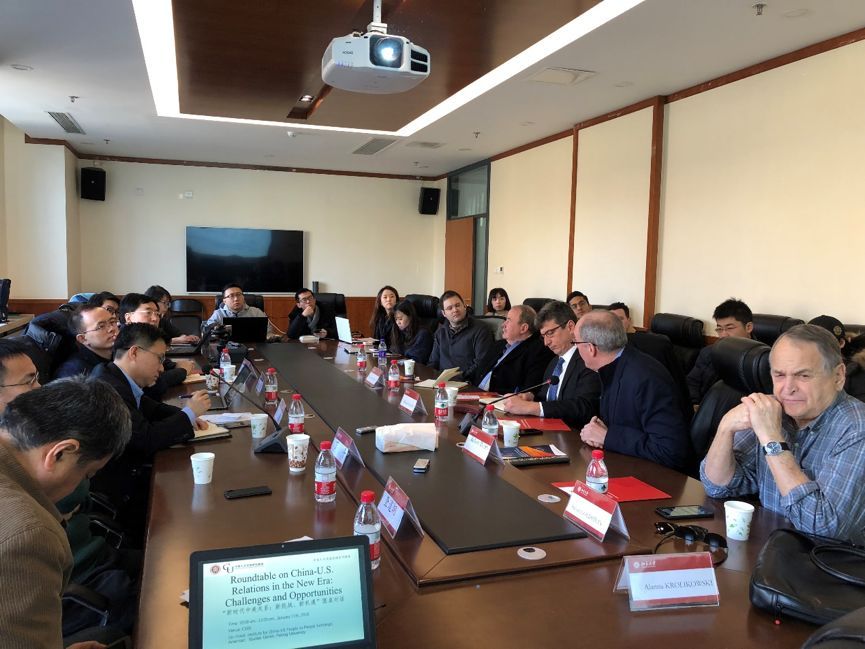
Currently, under the new circumstances, China-U.S. relations face new opportunities and challenges. On the morning of January 11th, 2018, invited by the Institute for China-U.S. People-to-People Exchange and American Studies Center of Peking University, five well-known U.S. scholars led by Michael Szonyi, Director of the Fairbank Center for Chinese Studies of Harvard University, visited the School of International Studies of Peking University. During the visit, the scholars and the faculty members and students of our school jointly convened a roundtable meeting themed "China-U.S. Relations in the New Era: New Opportunities and Challenges." This roundtable meeting was the second in the "High-Level Lectures on China-U.S. People-to-People Exchanges" in 2018.
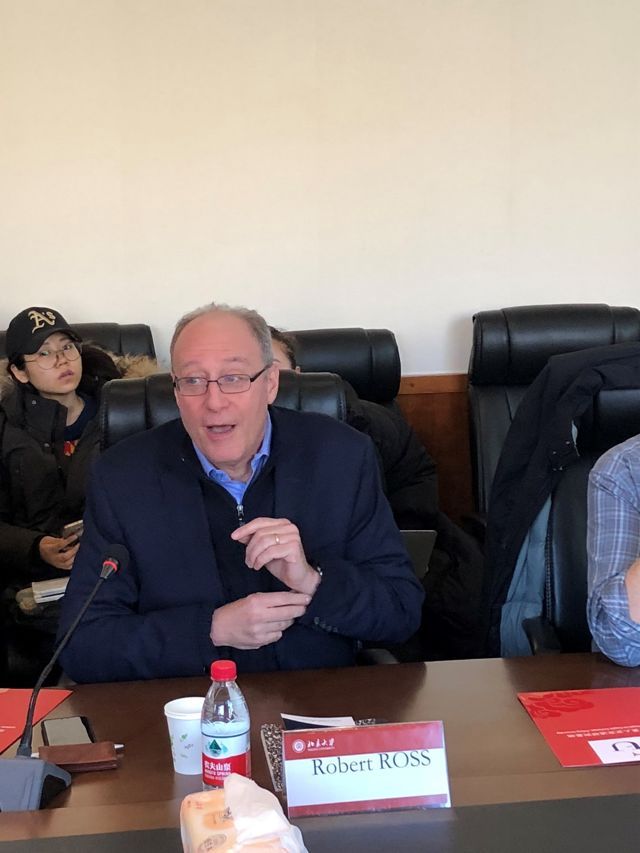
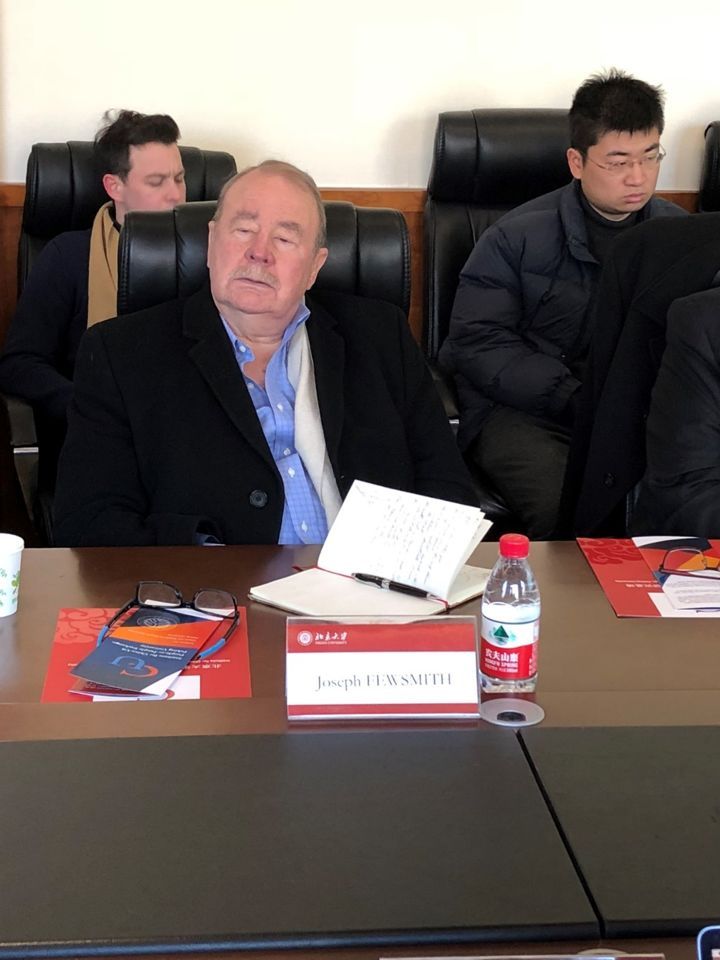
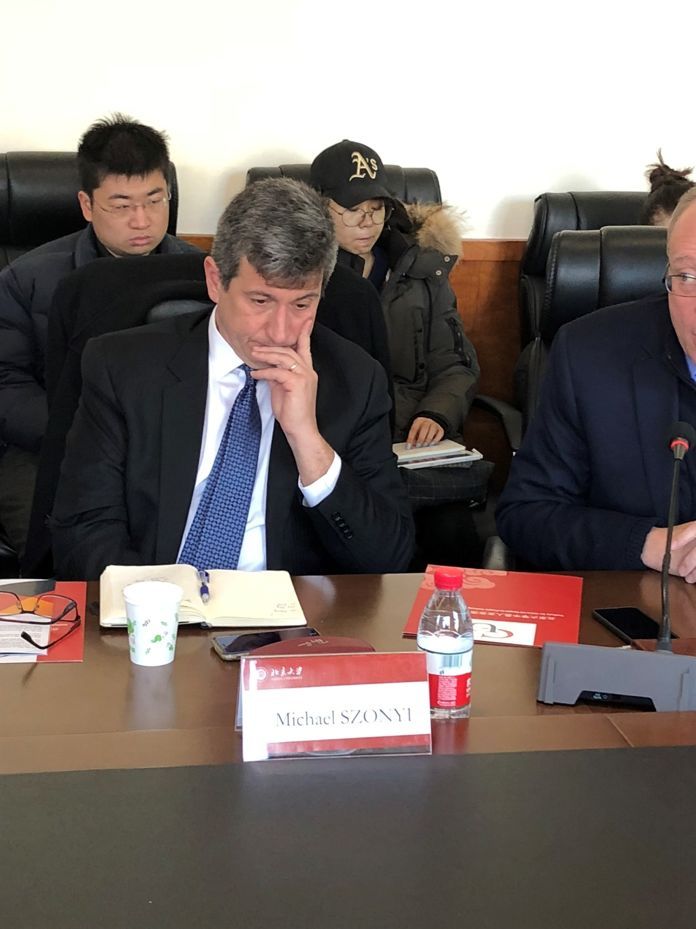
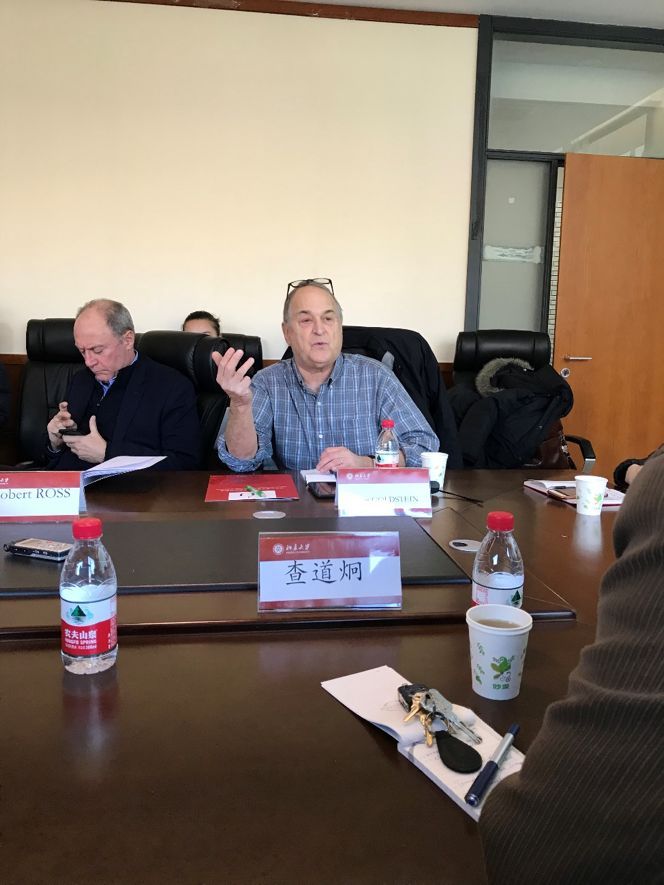

The U.S. participants included Michael Szonyi, Director of the Fairbank Center for Chinese Studies of Harvard University, Robert Ross, Researcher at the Fairbank Center for Chinese Studies of Harvard University, Steven Goldstein, a researcher at Fairbank Center for Chinese Studies, Harvard University, Joseph Fewsmith, Professor of International Relations and Politics of the Pardee School of Global Studies at Boston University, and Alanna Krolikowski from the China Institute of the University of Alberta. The Chinese participants included Jia Qingguo, Dean of the School of International Studies of Peking University and Executive Director of the Institute for China-U.S. People-to-People Exchange of Peking University, Zha Daojiong and Ding Dou, Professors of the School of International Studies of Peking University, Jie Dalei, Associate Professor of the School of International Studies of Peking University, and Zhao Longyue, Yunshan Leading Scholar and Dean of the School of International Governance Innovation of Guangdong University of Foreign Studies.
The meeting was presided over by Associate Professor Wang Dong, Executive Deputy Director of the Institute for China-U.S. People-to-People Exchange of Peking University. More than 20 students from the School of International Studies and Yenching Academy of Peking University joined the meeting. During the meeting, the two sides held in-depth open discussions of the Taiwan question, China-U.S. economic and trade relations, and the impact of China's domestic politics on bilateral relations.
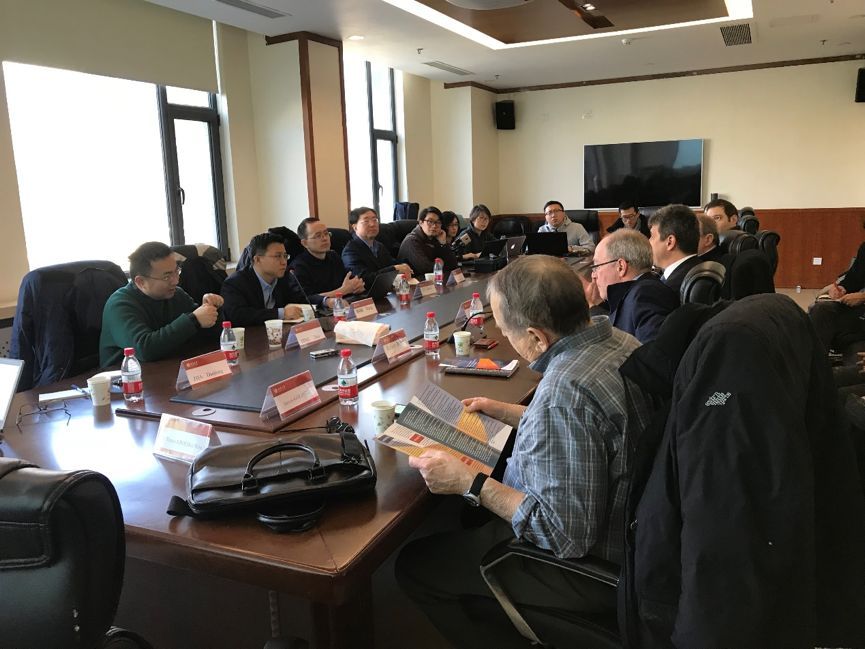
The U.S. scholars, who had recently visited Taiwan and Xiamen, communicated with the professors of our school about their observations on the current situation of cross-strait relations. After that, in-depth exchange of opinions was held by the two sides regarding the internal and external policies made by Trump and China-U.S. relations. U.S. scholars believe that the domestic situation faced by Trump is quite severe. Problems such as Russiagate are lingering and escalating. If Congress' investigation and the media's accusations occupy the majority of his attention, then it will be impossible for him to focus on China-U.S. relations and the domestic economy. The Chinese side held that the election commitment forced Trump to go to extremes and that he must now act like a strong man in a tough position. There is no essential difference between Trump's attitude towards China and that of the U.S. pro-establishment camp. Many of Trump's policies are continuations and extensions of Obama's policies.
The roundtable meeting lasted for two hours of in-depth and fruitful discussion. The heated debate showcased the complexity and challenges of China-U.S. relations, as well as the new opportunities. Exploring the hotspots between China and the U.S. in multiple dimensions is hugely beneficial for gaining a deep understanding of the Taiwan question, bilateral economy and trade, and domestic politics regarding bilateral relations in the new era.
After the meeting, the Institute for China-U.S. People-to-People Exchange of Peking University and Fairbank Center for Chinese Studies of Harvard University reached an initial cooperation intention to conduct academic exchange and establish institutional dialogue platforms.
Established in 1955 by Prof. John King Fairbank (1907–1991), the Fairbank Center for China Studies of Harvard University is a world-famous East Asian research institute, a pioneer and a place of strategic importance for overseas Chinese studies, and a galaxy of excellent scholars in Chinese studies.

The Institute for China-U.S. People-to-People Exchange of Peking University is a research institution approved by the Ministry of Education and undertaken by Peking University. Relying on the profound cultural heritage of Peking University, it aims to promote people-to-people exchange between China and the United States in the areas of academic research, scientific research cooperation and cultural exchange, to enhance mutual trust and friendship at the non-governmental level, and to eliminate prejudices and misunderstandings, thereby making positive contributions to the healthy development of relations between the two countries. Since its establishment in October 2011, the Institute has carried out cross-cultural and interdisciplinary research based on the cultural traditions of China and the United States, and completed a tremendous amount of work in organizing scientific research, academic exchange, press and publication, and policy consultation. Efforts are being made to build an academic center for China-U.S. humanities, social sciences and scientific research exchange. Meanwhile, it focuses on the exchange between the people of China and the United States by carrying out multi-dimensional dialogues, thus becoming an essential platform for people-to-people exchange between China and the United States.
